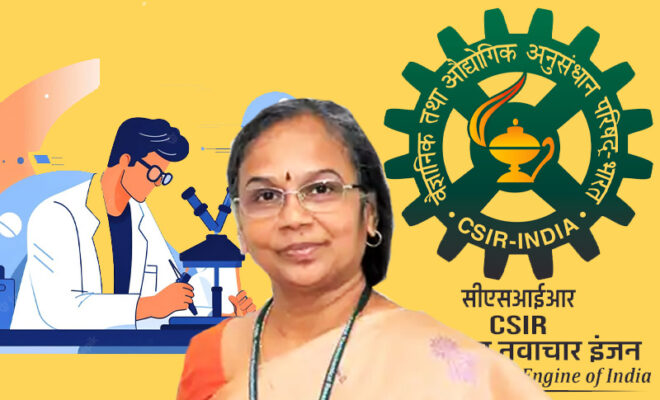CSIR Adopts New Work Culture, Puts Industry Needs First

A fast-paced world needs organizations and industry to align with its needs, and the same has been done for CSIR, putting the industry first.
CSIR has put the industry needs first and developed technology accordingly as part of its new work culture. N Kalaiselvi, Director-General at CSIR, believes this is much needed in a fast-paced world of technology. She said it was about time the Council of Scientific & Industrial Research worked closely and in synergy with the industry.
A new working culture is taking shape. Kalaiselvi said this is beneficial for both the CSIR and the industry. Taking a step away from the past, they will first talk with the industry , get their wishlist of critical challenges and demands, and put it across to the CSIR.
Industry First
The DG pointed out that it isn’t about revenue. “Whatever small financial support that is funded from our end and we ask the industry to support it many times in kind rather than cash. Whatever facilities we have and they have, we make use of it as common facilities. We become the knowledge partner and they become the implementing agency.”
Kalaiselvi said there are many industry-specific projects that the Council has worked on, such as fast commercialization projects wherein the industry is the indispensable partner from the very beginning of the project. And now the new work culture will take understanding between the Council and the industry to greater heights.
Some Projects CSIR is On
The Council of Scientific & Industrial Research has been working on renewable energy generation, application and storage. It is also into R&D. Kalaiselvi shared that they worked on fuel cell-powered car and bus, and worked with private industries. CSIR takes care of all verticals, be it green hydrogen, or any other form of renewable energy.
Also Read:- Best App To Watch Web Series For Free
The CSIR created a 1,000-cell making facility for Godi India Private Limited of Hyderabad. Some of its completed projects include non-thermal processing of liquid foods, agrotechnology transfer and thymol crystal, coal dust collecting and briquetting system, and waterless chrome tanning among others.
The executive said the Council has been working very closely with the industry.



